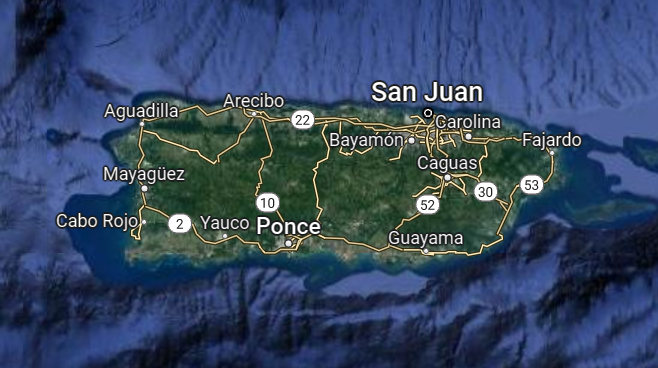On Tuesday, Puerto Rico held its first public hearing on a bill aimed at limiting the use of abortion in the country. In fact, the text has already been approved by a Senate committee at the end of March and should have been voted at the beginning of the month in the upper chamber, which instead sent it back to the committee precisely because of the criticism of the fact that public hearings had not been organized.
Abortion law in Puerto Rico
This is a bill aimed at placing limits on termination that do not currently exist. On its territory, Puerto Rico applies the legislation of the United States of America, which it chose to join as a federated state with a popular referendum in 2012 confirmed by an electoral consultation in 2017. The entire accession process is expected to be completed by 2025. Elective abortion, meanwhile, is legal there at all times.
The new bill
The new bill, if passed, would prohibit abortion after the 22nd week of life of a child in the womb or when a physician determines that “the fetus is viable,” except only when the woman’s life is at risk. It doesn’t mean winning the war against the culture of death, obviously, but it does mean scoring a point, however small. And saving at least some lives.
“The hearing,” reads the website of ABC News, “comes amidst the belief that a conservative majority on the US Supreme Court could nullify or weaken the constitutional right to ‘abortion resulting from Roe v. Wade of 1973″ and in the wake of several states in the Union, which have imposed a threshold on abortions, many at 20-24 weeks or earlier, on fetal viability found through heartbeat detection.
Senator Joanne Rodríguez Veve, one of the authors of the bill, said that the government has a specific responsibility to protect the lives of children, rejecting the opposition of critics who mentioned babies conceived without being wanted or by an act of violence. “Those children will find other arms where they will be held, cared for and loved,” Rodríguez said.
The new law has been met with opposition from pro-abortion activists, who would not like any limitations to be introduced on the Caribbean island; however, some pro-life activists also oppose the bill because they would like abortion to be banned tout court.
The tragedy of the past: “la operación”
In the past, Puerto Rico has experienced a very particular history of violence against women and their children. Or, rather, against the children they could not have. In 1937, Law 116 was passed on the island, officially allowing sterilization based on eugenics, kicking off what was called “la operación.”
In a neo-Malthusian impetus, considering the population too large in relation to the very scarce economic resources, the Puerto Rican government, subsidized by the United States, promoted hysterectomy and tubal ligation among women in the poorest strata of the population, composed mainly of people of color. Employers encouraged female employees to have the surgery, and health care providers went door-to-door to convince mothers who already had two children to go for it.
After about two decades, by 1953, nearly one-fifth of Puerto Rican women had undergone sterilization free of charge, and by the 1970s, as many as one-third of the island’s women were being referred. Many of these women did not know what they were getting into and were unaware that the surgery was irreversible. There is also a documentary on this terrifying chapter of Puerto Rican history, made in 1982, entitled La operación.
During the years of “la operación,” women in Puerto Rico also played a sadly important role in the experiments to develop the first birth control pill. Many poor women of the island, in fact, were included in the clinical trial programs of contraceptive drugs without their knowledge and therefore without their consent, like human guinea pigs, unaware that among other things, these pills entail significant risks to their health.
Yesterday sterilization and forced contraception, today a law totally open to abortion that, far from being abolished, may not even be limited. There is no peace, for the women of Puerto Rico and their children.
